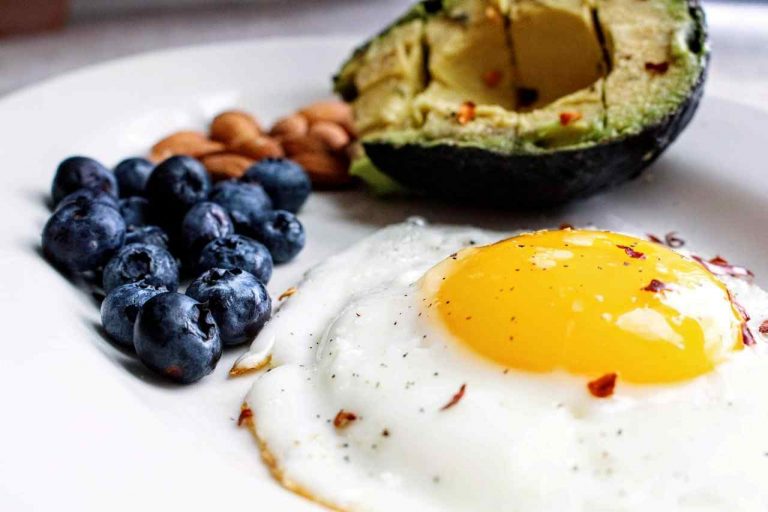Is the keto diet right for you?
That’s something that’s asked quite often. I hear people ask about the keto diet when they’re interested in losing weight. I hear people talking about keto as THE diet to follow.
The keto diet has been in existence for about 100 years, though its roots go back thousands of years. Only in the last few years has it exploded on to the scene as the diet above all others. It’s hard to find something that doesn’t mention the keto diet.
At the same time as the successes and hype have taken off, a lot of doubts exist as to the validity and the safety of the keto diet.
Do you want to learn more about keto and find out if it can work for you?
Read on to learn what the keto diet is, the pros and cons, and how you can tell if the keto diet is right for you.
Keto 101: What is the Keto Diet?
At the most basic Keto 101 level, the keto diet is a diet that requires that you eat very low carbs and high amounts of fat.
Most diets have a macronutrient breakdown of 30% fats, 30% carbohydrates, 40% protein. This varies a little bit between diets, but you can see from the chart below what the typical breakdowns are.
As you can see, with keto, the breakdown is more like 5% carbohydrates, 20% protein, and 75% fats. Yes, you read that right, 75% fat. Your carbohydrate intake is about 30-50 grams of carbohydrates for the entire day. To put that into perspective, you’re talking about a couple of small pieces of fruit.
You’re basically taking the normal carbohydrates intake and replacing them with fat. Your protein intake can remain the same or it can increase, depending on the type of keto diet you’re on.
Keto History
It may seem like the keto diet is brand new, but its roots actually go back thousands of years. You might know about the famous Greek doctor Hippocrates.
He noticed a man who was having seizures for days stopped having them when he “abstained from everything, both gruel and drink, and there were no further seizures.” Over a thousand years later, in 400 BC, Avicenna, a Persian doctor noted a neurological condition called epilepsy, which could be due to overfeeding.
Fast forward to 1911. Doctors in Paris tried fasting to treat children with epileptic episodes. Fasting has been used to treat other neurological issues as well.
In 1921, Dr. Russell Wilder found that when his epilepsy patients ate a diet that was high in fat and low in carbohydrates, their conditions improved. Dr. Wilder was the person who called this way of eating the ketogenic diet.
A few years ago, the ketogenic diet made quite the comeback as fitness competitors were looking for that edge in their competitions. This trickled down to the general population in a major way. People see keto as a life hack to lose weight fast. Now, you can’t turn around without seeing a book or a blog touting the benefits of the ketogenic diet. But is it all that people make it out to be? Let’s find out.
The Science Behind the Ketogenic Diet
Typically, when you hear someone describe the ketogenic diet, you’ll hear them say something along the lines of “It’s a diet that burns fat instead of carbs.”
Sounds pretty damn cool, doesn’t it?
Here’s what happens when your body turns fuel into energy, assuming you eat a standard diet of carbohydrates, fats, and proteins. Keep in mind that this is a highly simplified version.
There are three main pathways to turn fuel into energy. Which one that’s used largely depends on you and your energy needs. Let’s say you’re on a track running sprints. You’ll be using one metabolic pathway. If you’re sleeping, going for a walk, you’ll use another. And if you’re doing a long run at a moderate pace, you’ll use another one.
The one thing that these have in common is that they use carbohydrates as their primary source to create energy for your body. Your body metabolizes carbohydrates and turns it into glucose. Glucose is then used as fuel. Your body also metabolizes fats to be used for a host of purposes. Very rarely will your body metabolize protein for energy.
The bottom line is that all three macronutrients are important and play a significant role in your body’s ability to function.
What Happens When You Consume Little Carbohydrates
Since you’re taking in a very small amount of carbohydrates each day, your body has to find a way to create energy so you can function.
Enter ketosis.
Ketosis is the process where your body oxidizes fat cells and turns them into energy. Instead of producing glucose to run the normal functions of your body, your energy comes from ketones.
To make a long story short, what you’re doing is using the backup generator (ketone production) to supply energy for your entire body. If you’ve ever used a generator to power your home, you know that it’s a great backup system to have on hand when you need it. Yet, you don’t want it to be your primary source of energy for your home.
Your home probably prefers to get its energy from the grid to power all of your lights, TVs, etc.
Same with your body. Your body prefers to get its energy from carbohydrates. When that system isn’t available because of fasting or severely restricting the number of carbohydrates, the backup generator kicks in and produces ketones for energy.
Types of Keto Diets
As if the keto diet wasn’t already complex, there are several types of ketogenic diets that people follow. They follow them based on their goals and how much carbohydrates they consume each day.
The Standard Ketogenic Diet (SKD)
This is the most common keto diet for the general public. On this version, you consume 20-50 net carbs each day, about 20% protein and 75% fats.
Targeted Ketogenic Diet (TKD)
If you workout while on the ketogenic diet, you will need to make sure your body has the proper fuel for exercise. On the TKD, you target your carbohydrate consumption to 30 minutes before exercise.
Cyclical Ketogenic Diet (CKD)
Physique competitors and high-intensity athletes use this type of keto diet. They cycle in and out of carb-loading and low carbohydrate intake.
Lazy Keto
Finally, there’s the Lazy Keto approach. Don’t get too excited about it. Lazy Keto is only tracking carbohydrate intake and keeping it to less than 50g per day. The Lazy Keto followers don’t track fats or proteins, just carbohydrates.
How Restrictive is the Keto Diet?
Here’s something that people don’t really talk about. In order to keep your macronutrients in a 75%, 20%, 5% ratio range, you’re very limited as far as what you can eat.
You may also find yourself eating the same things over and over because the keto diet is very restrictive. On the keto diet, you are counting “net carbs” which is the number of carbohydrate grams minus grams of fiber. Even still, you’re consuming a lot fewer carbohydrates than you normally would.
What can you eat on the keto diet? Bacon! Butter! Oh, boy! Yes, these things can be eaten because they’re high in fat and have no carbohydrates.
Other fats like nuts, avocados, olive oil, fish oil, coconut oil are also on the OK list. So are meats, seafood, ham, and sausage. As far as sweeteners go, you can have stevia and sucralose in small amounts.
Fruits, beans, grains, root vegetables like beets, carrots, and potatoes are off the list. Same with most alcohol, sweet drinks, low-fat dairy products, and sauces. You might be surprised to learn that canola oil, sesame, soybean, grapeseed, and sunflower oils are off the list.
What can you drink on the keto diet? Dry wines, champagne, and hard liquor are OK in small amounts. You can see that you’re really limited to what you can have, and you need a lot of self-discipline to stick with it. Don’t despair, though. There are dozens of keto recipes that you can find online.
Does the Keto Diet Really Work?
You can argue that the keto diet works. Just because something works, does that mean you should do it? That’s the question that needs to be answered.
The keto diet works, but it doesn’t work for everyone. While we have 99.9% of the same genetic makeup, there’s that .1% that makes the difference when finding a way of eating that works for you. It’s tough to stick to, and it’s not really meant to be a long-term solution.
Your body likes to use carbohydrates as a primary fuel source. Depriving your body of something that it wants to run efficiently isn’t the best thing to do to your body in the long run.
Think of your body as a high-performance car. Typically, high-performance cars need premium fuel as a fuel source. Technically, you can use low-grade unleaded. Just because you can, doesn’t mean that you should because you can cause long-term damage to your engine. Same thing with food.
Your body is a high-performance engine that thrives on carbohydrates to run efficiently. Your body could create ketones for energy when you don’t have enough carbohydrates. Again, just because you can, doesn’t mean you should rely on that process full-time.
Here’s another thing to keep in mind. What happens when you stop the keto diet? Just like most other diets that are temporary, people do tend to gain the weight back. In my humble opinion, it seems like way too much work for a short-term fix.
Is the Keto Diet Dangerous?
For the most part, the ketogenic diet is safe for healthy people. Does that give you the green light to go ahead and jump on the keto bandwagon? Not necessarily. The keto diet can be useful in treating certain conditions like type 2 diabetes and brain issues.
If you plan to go on the keto diet to treat these conditions, you need to do so under the supervision of your doctor. Even if you’re healthy and you want to go on keto to lose weight, check with your doctor first.
You may be on medications that can create an issue if you are on the keto diet. The science is also out on the long-term impact of the ketogenic diet. A 2004 study where the ketogenic diet was used for obese people found a lot of positive results. That study lasted 24-weeks and found no harmful impacts.
But, celebrities do it… Yes, they do. They also get paid millions of dollars to look good. They also have the funds to hire loads of personal trainers, stylists, chefs and more just to look good. It’s their job. Odds are, you’re in a different profession.
Looking to celebrities for diet advice or examples isn’t the best thing for you. Here are a few other things you should know about the ketogenic diet.
What is Ketoacidosis?
You may have heard of a term called ketoacidosis. Is that the same thing as ketosis? No, it’s not. Ketoacidosis is a condition where the body doesn’t regulate itself in ketosis. As a result, your body has a build up of ketones. This is a very dangerous metabolic issue that is found in diabetics and alcoholics.
How Do You Know You’re In Ketosis?
As you’re on the keto diet, you need to know if your body is in ketosis, that is producing ketones. Ketones are present in blood, urine and on your breath. There are products available that will track the number of ketones your body excretes in your urine. Yes, this is a diet where you pee on a stick to figure out if it’s working or not.
Keto Flu
There is a common effect of starting the keto diet called keto flu. This happens when your body isn’t getting the carbs that it needs to create energy, so it starts to switch gears. Your body will experience flu-like symptoms such as fatigue and achiness.
Is the Keto Diet Right for You?
After reviewing the science behind the keto diet, weighing the pros and cons, it’s time to ask is the keto diet right for you?
I see how keto has helped diabetics and people with neurological disorders and many others control their weight. I’m also not attached to diet dogma. I believe that you should stay open-minded and find what works for you. Is there value in going on the ketogenic diet? Sure, if you’re diabetic or epileptic and you’re under the supervision of a dietician or doctor.
That being said, as a diet for the general population, I think the keto diet is irresponsible. When you cut carbohydrates that much, you’re depriving your body of much-needed energy. You’re relying on your backup generator to be a primary source of energy.
The science is still out as to whether the keto diet is harmful if you do it continuously for a long period of time. Not only that, the keto diet is a massive pain in the ass.
I know that there are a lot of you reading this and you really want to tell me that I’m wrong about keto. That’s fine. If you have done the keto diet or are doing the keto diet and think it’s the best thing since sliced bread, that’s great. This isn’t about right or wrong. This is about what’s right for you. I’m just laying out the research and stating my own conclusion.
At the end of the day, there’s one question that you need to ask yourself before starting any new way of eating.
Am I going to eat this way the rest of my life?
That’s the most important thing you can ask yourself. Yes, you can go on keto or any other diet and see results. Will those results last? Only if you eat that way the rest of your life. If you do decide to do it, find a professional dietician or doctor to work with you. Sacrificing your long-term health isn’t worth the benefits of short-term weight loss.
What is the Solution to Long-Term Weight Loss?
I’m not a fan of diets. As a fitness professional, I believe in balance. I believe that you should enjoy yourself and eat sensibly. When you do things like cut out processed food, control your portions, eat with presence, and build other daily habits, you can start to build habits that will help you lose weight in the long run. We’ve seen fad diets come and go over the years, and it’ll be interesting to see if keto sticks around.
In this age of bio-hacking and bulletproofing, we’re constantly looking for ways to be better. There’s nothing wrong with that at all. Striving to be better and achieve mastery is a big part of living life. Where we run into problems is that we fail to master the basics first. Instead, we’re looking for that one thing that’s going to solve all of our problems. That’s true in fitness, in business, and in life.
I believe that in order for people to lead healthy lives on a consistent basis, you have to master the basics first. When you do that, you won’t need to consider keto or any other diet. Slick marketing may tell you otherwise, but you can ignore that. Keep your head down, stick with the basics and get the right support system in place. That will make a much bigger impact than anything else.
Do you need to learn more about what a sustainable nutrition plan is? Get free nutrition tips when you download a printable food journal.



